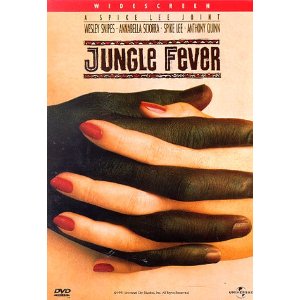 By Jae-Ha Kim
By Jae-Ha Kim
Chicago Sun-Times
June 16, 1991
There’s a scene in Spike Lee’s new film, “Jungle Fever,” that hit a little too close to home for Wesley Snipes. The lovers portrayed by him and co-star Annabella Sciorra are engaged in a playful embrace that a police officer mistakes as a black man raping a white woman. Snipes’ character gets a gun put to his head.
Flashback: Wesley Snipes the actor is getting into a rental car in Los Angeles when a police officer stops and arrests him, charging Snipes with driving a stolen vehicle. When Snipes protests, he is kneed in the neck, handcuffed and gets a gun pointed at the back of his head. In jail, other prisoners recognize him, ask him how much money he makes and request autographs.
The incident, which occurred last winter, was not his only brush with the law.
“The theory seems to be that if you are an African-American man in this country, you are guilty until proven innocent,” Snipes said. “I’ve been stopped twice just getting into my own car in L.A. when I had my keys in my own hands. It’s not even a flashy car – just an Acura Legend – but I guess the common belief is that African-Americans can’t afford nice cars.
“In telling these stories to my friends, none of them were overly upset because they’d all experienced it. African-American males deal with these kinds of stereotypes all the time. Blair (Underwood of NBC’s `L.A. Law’) had a similar experience jogging in his own (predominantly white) neighborhood, and the show did an episode about what he went through with the police department. I’m used to cabs not stopping for me because (the drivers) are afraid I might rob them. People who watch these things happen on TV or at theaters think this is fiction, but for us it’s reality. It’s really crazy out there.”
It is with these kinds of prejudices in mind that Snipes chooses his roles, carefully bypassing the parts he considers insulting to blacks. He realizes that lesser-known black actors will take the roles he turns down, but that his rejection of demeaning roles is a personal triumph. He tries to help black actors by setting a standard of excellence, which he said he is still far from achieving. With “Jungle Fever” (now playing at local theaters), Snipes has won the leading role in a high-profile film. He plays Flipper Purify, an upwardly mobile architect having an affair with his Italian-American secretary (Sciorra).
“The movie industry right off the bat is geared for white actors,” Snipes, 28, said in a phone interview from New York. “When screenwriters write material, they write with white actors in mind, unless they’re black writers like Spike. The only roles available to minorities then are specifically designated as for an African-American man or an Asian woman of whatever.” Laughing, he added, “That’s the nature of this business, but it really fascinates me that so many films can be made with no non-white people in them!”
Currently Snipes is finishing up work on his latest film, “Waterdance,” co-starring Eric Stoltz, Elizabeth Pena and William Forsythe. He portrays a paraplegic in a rehab ward who has to readjust to his physical limitations. Trained in the martial arts, Snipes said forcing himself to express himself without movement was a difficult process.
Born in Florida and reared in New York, Snipes got his break in acting six years ago when he won a small role in Goldie Hawn’s “Wildcats.” He turned down a part in Lee’s “Do the Right Thing” to play Willie Mays Hayes in the baseball comedy “Major League,” but won rave reviews for his portrayal of jazz saxophonist Shadow Henderson in Lee’s “Mo’ Better Blues.” He plays a deceptively charismatic crack dealer in “New Jack City” (continuing at local theaters). That role was created for Snipes after screenwriter Barry Michael Cooper saw him playing Michael Jackson’s antagonist in the “Bad” video.
“I think that some people may mistake my comments about not wanting to do `stereotypical’ parts for not ever accepting a role as a gang member or drug lord again,” Snipes said. “That’s not true, because if a great role comes up and he happens to be a pimp, I’ll do it. So many scripts out there have African-Americans portray worthless people because it’s accepted, and the roles have no redeeming values. It’s sort of similar to the analogy of pretty women in Hollywood being offered parts where they are undressed or are basically window dressing. I don’t want prejudice to ever become acceptable and the norm, because it’s not.”